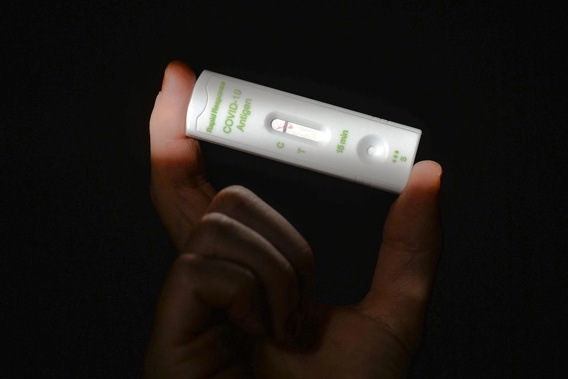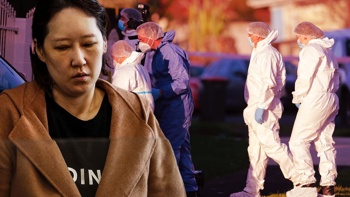
Nearly a million more rapid antigen tests will be available for schools and early learning centres, Covid-19 Response Minister Chris Hipkins says.
This is on top of about 700,000 Hipkins said at the end of February had been distributed by the Ministry of Education among its regional offices.
These tests would be available for schools, kura and early learning centres to opt-in to receive and give to symptomatic children, young people and staff, and the people in their households, meaning they did not have to go to community testing centres.
This would help those schools remain open, said Hipkins, who himself today reported he had tested positive for Covid-19 and would be self-isolating for seven days.
Early learning centres and specialist schools can also access RATs for reassurance testing to give parents confidence their centre can stay open.
Those centres that opt-in will receive enough tests for staff to do twice-weekly testing.
These were voluntary, short-term measures for the peak of Omicron, Hipkins said.
Household contacts with no symptoms could also opt into a scheme to continue going to work as long as they returned a negative rapid antigen test each day.
Staff at schools and early learning centres were still required to be vaccinated, and mask use was compulsory in years 4 and up.
Hipkins said schools were improving ventilation also, using C02 monitors to identify where it could be improved, and either making physical adjustments to buildings or using portable air cleaners.
All schools would have at least one portable air cleaner by May they can use in high-risk areas. The ministry was seeking out more supplies of both air cleaners and C02 monitors.
Meanwhile, work on long Covid is in the works as stretches of the country face reckonings with possible Omicron peaks.
For the first time in months, the pandemic has taken a back seat to other political issues, including living costs and fuel prices this week.
But 960 people with Covid-19 are in hospitals around the country, including 22 in intensive care or high dependency units.
Auckland had almost certainly passed its Omicron peak, and it seemed Waikato and Northland had too, epidemiologist Professor Michael Baker said last night.
He said case and hospital data also suggested Taranaki, Lakes (in and around Rotorua) and Wellington's Capital and Coast health board regions had peaked or were peaking.
"The rest of the country is still going up at the moment, but probably not that far behind," the University of Otago public health expert said.
Baker said regions yet to hit an Omicron peak were probably about two weeks behind Auckland.
He said some of the data read like a "sawtooth", going up and down a little, but in Auckland cases had largely fallen for 11 days.
The majority of people in hospital with Covid-19, including those in hospital for other reasons but who tested positive for the virus, are in greater Auckland.
In Waikato, 77 people were in hospital, and about three dozen each were hospitalised in the Bay of Plenty, Lakes, Capital and Coast, and Canterbury.
No evidence long Covid more likely the worse you get virus
Victoria University epidemiologist Mona Jeffreys is encouraging New Zealanders who had Covid-19 before December last year to take part in a long Covid study.
Speaking with Newstalk ZB's Mike Hosking, Jeffreys said whether age or underlying conditions were a contributing factor to long Covid would be determined during the research.
"The more people we have the better the evidence we'll get to answer exactly those questions," said Jeffreys.
There were concerns for people who endured just mild symptoms of Covid-19 as well as those whose symptoms were severe.
"At the moment there is no evidence to show that the worse you have Covid the more likely you are to have long Covid so that's why we're really concerned."
She said the burden of long Covid following the Omicron outbreak is going to be huge for the months and years to come.
The condition is diagnosed through an exclusion process.
There had been a number of people suffering with the condition who were infected with the virus at the beginning of the outbreak in New Zealand.
In the community yesterday, 21,616 new Covid-19 cases were recorded.
The Ministry of Health said it was not unexpected to see more cases on Tuesday than on Monday, and lower weekend test numbers could impact the number of cases identified.
Director general of health Dr Ashley Bloomfield said case numbers in northern regions surpassed the 11,000 cases which Te Pūnaha Matatini modellers had anticipated.
This could be due to the introduction of rapid antigen tests, Bloomfield said.
Bloomfield said the Omicron peak may have been higher in Auckland due to the virus sub-variant known as BA.2 taking over.
Bloomfield said the new variant had a "transmission advantage" but there was no evidence it caused more severe illness than its BA.1 predecessor.
The Delta strain was now virtually non-existent in New Zealand, with the milder but more infectious Omicron displacing it.
Areas with a big initial Omicron outbreak were now facing a second wave with the BA.2 subvariant, Bloomfield said yesterday.
And the Ministry of Health will fund a study aimed at understanding the experience of people who have had Covid, looking at long-term and short-term virus impacts.
Chief science adviser Dr Ian Town said most people who got Covid recovered fully.
But at a press conference he said Covid-19 should not be regarded as trivial - and just getting it for the sake of getting it could have serious consequences.
Town said symptoms of long Covid included headaches, low mood, cognitive impairment or brain fog and joint pains.
He said people could also suffer ongoing changes to the sense of taste or smell and poor quality of sleep.
Town said Martin Chadwick, chief allied health officer, would chair an expert advisory group to provide guidance and support to health practitioners.
On the outbreak in Wellington, Bloomfield said the outbreak appeared to still be spreading.
Bloomfield said nationwide, 425 ventilators were in service and just 68 (or 16 per cent) were currently in use for patients.
Near the start of the pandemic in April 2020, there were just 334 ventilators nationwide.
Bloomfield said there were almost 300 intensive care and high dependency unit beds around the country and about 60 per cent were occupied.
Bloomfield said Covid-positive people were occupying less than 10 per cent of total ICU and HDU beds - and he wasn't sure if any of them were ventilated at the moment.
Meanwhile, a Green Party MP apologised for breaking Covid-19 restrictions and resigned her pandemic response portfolio.
Dr Elizabeth Kerekere said she travelled from Tairāwhiti to Wellington on Sunday, even though a member of her household tested positive just two days earlier.
Household contacts are supposed to self-isolate from the day the person with Covid tested positive until that person finished seven days of isolation.
A household contact is supposed to get tested on the third day and seventh day of isolation.
Kerekere said she was profusely sorry to constituents, whānau and colleagues.
"I am also sorry for adding to the risk and stress that our healthcare and essential workers on the front line continue to experience two years into a pandemic."
She said she resigned her Covid-19 response portfolio with immediate effect, and would not hold the Health portfolio or sit on the Health Select Committee until further notice.
"She has admitted and apologised for a mistake," Green Party co-leader Marama Davidson said.
"We understand it's important for everyone, including MPs, to abide by the rules."
- By John Weekes, Julia Gabel
Take your Radio, Podcasts and Music with you









